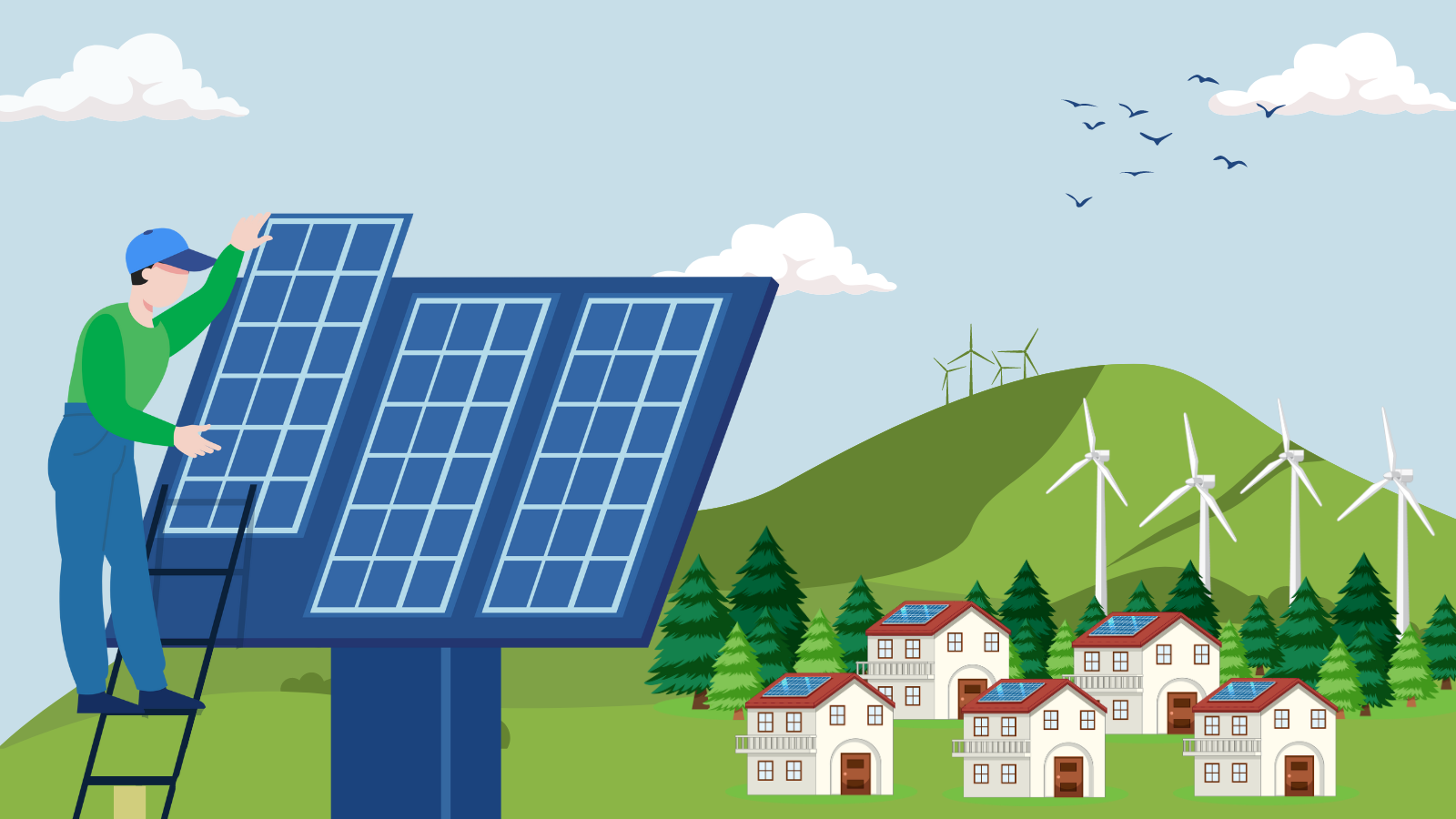Debunking Common Myths About Solar Energy
Date added: Fri 26 Jul 2024

Solar energy has become increasingly popular as a sustainable and eco-friendly power source. However, despite its growing adoption, several myths and misconceptions persist. In this blog, we'll address and debunk some of the most common myths about solar energy, providing clear and factual information to help you make informed decisions about embracing this renewable energy source.
Myth 1: Solar Panels Don't Work in Cloudy or Cold Climates
Fact: Solar panels can generate electricity even on cloudy days. While it's true that solar panels are most efficient in direct sunlight, they still produce power under overcast conditions. Germany, for example, is a global leader in solar energy production despite its relatively cloudy climate. Similarly, solar panels work efficiently in cold climates because they convert light, not heat, into electricity. In fact, cold temperatures can improve the efficiency of solar panels.
Myth 2: Solar Energy Is Too Expensive
Fact: The cost of solar energy has decreased significantly over the past decade. Advances in technology, increased manufacturing scale, and government incentives have made solar power more affordable than ever. Many countries offer subsidies, tax credits, and rebates to reduce the initial investment. Moreover, pairing your solar system with a smart battery storage solution, such as the Tesla Powerwall, can maximize your savings by storing excess energy for use during peak times, ensuring you get the most out of your solar investment.
In addition to these benefits, the long-term savings on electricity bills and the potential increase in property value often far outweigh the upfront costs, making solar energy a wise financial decision for homeowners.
Myth 3: Solar Panels Require Constant Maintenance
Fact: Solar panels are designed to be low-maintenance. They have no moving parts, which means there are fewer components that can fail. The only regular maintenance typically required is periodic cleaning to remove dirt and debris that might reduce efficiency. Most solar panels come with warranties that last 20-25 years, ensuring their performance and durability.
Myth 4: Solar Panels Aren't Environmentally Friendly to Produce
Fact: While the production of solar panels does involve energy consumption and some environmental impact, this is quickly offset by the clean energy they produce over their lifespan. Studies show that the energy payback time for solar panels—the time it takes for them to generate the amount of energy used in their production—is typically between one to four years. Given that solar panels can last 25-30 years, their environmental benefits far outweigh the initial production impact.
Myth 5: Solar Panels Will Damage My Roof
Fact: When installed correctly by professionals, solar panels can actually protect and preserve the part of the roof they cover. They shield the roof from the elements, potentially extending its lifespan. Proper installation ensures that there are no leaks or structural issues. If you need to replace your roof, solar panels can be removed and reinstalled without causing damage to either element.
Myth 6: Solar Energy Isn't Reliable
Fact: Solar energy is a highly reliable source of power. With advancements in energy storage solutions, such as battery systems, excess energy generated during sunny periods can be stored for use when sunlight is not available. This means you can have a consistent power supply even during the night or on cloudy days. Additionally, grid-tied solar systems allow you to draw power from the grid when necessary while still benefiting from solar energy.
Myth 7: Solar Panels Are Ugly and Decrease Property Value
Fact: Modern solar panels are sleek and can be integrated into various roof designs, often enhancing the aesthetic appeal of a property. Moreover, numerous studies have shown that homes with solar installations have increased property values and sell faster than those without. Homebuyers are increasingly looking for energy-efficient homes with lower utility costs, making solar panels a valuable asset.
Read our other blog below to learn more about this: https://www.thenaturalenergycompany.co.uk/blog/Solar-Energy-and-Home-Value:-How-Solar-Panels-Increase-Property-Worth
Conclusion
Solar energy is a viable, cost-effective, and environmentally friendly option for powering homes and businesses. By debunking these common myths, we hope to encourage more people to consider solar energy as a practical and sustainable solution. If you have any more questions or are interested in exploring solar energy options for your property, contact us at The Natural Energy Company. We\'re here to help you make the transition to a greener future.
